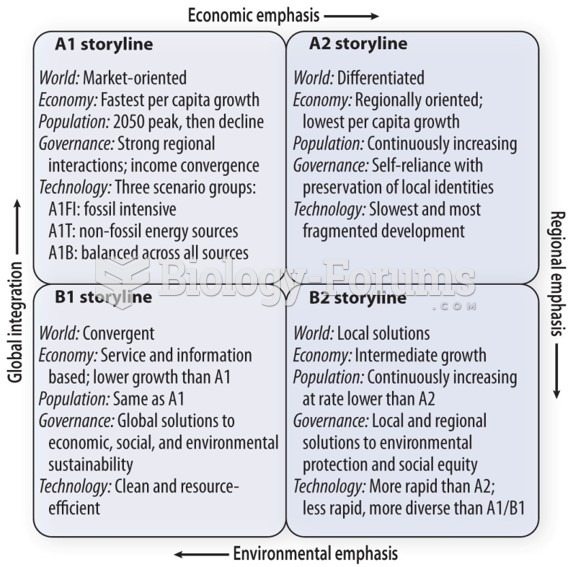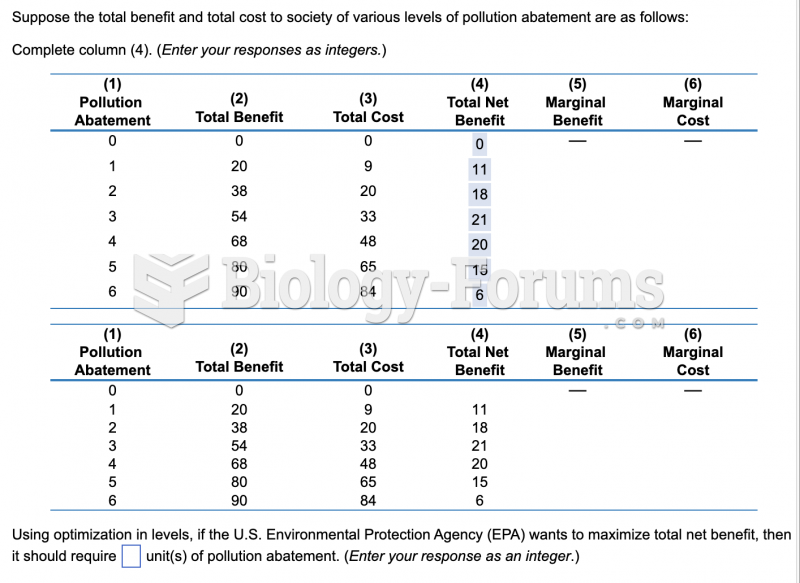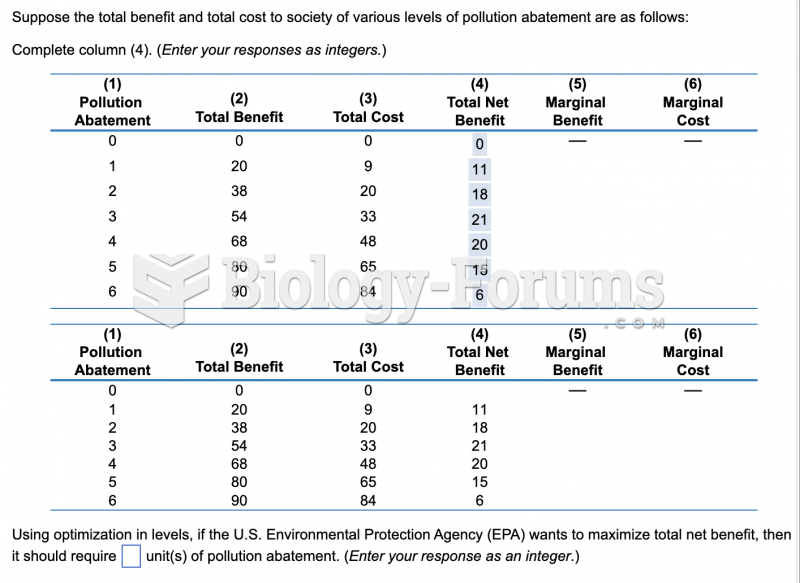|
|
|
Nearly 31 million adults in America have a total cholesterol level that is more than 240 mg per dL.
More than 4.4billion prescriptions were dispensed within the United States in 2016.
Most strokes are caused when blood clots move to a blood vessel in the brain and block blood flow to that area. Thrombolytic therapy can be used to dissolve the clot quickly. If given within 3 hours of the first stroke symptoms, this therapy can help limit stroke damage and disability.
Despite claims by manufacturers, the supplement known as Ginkgo biloba was shown in a study of more than 3,000 participants to be ineffective in reducing development of dementia and Alzheimer’s disease in older people.
Urine turns bright yellow if larger than normal amounts of certain substances are consumed; one of these substances is asparagus.







